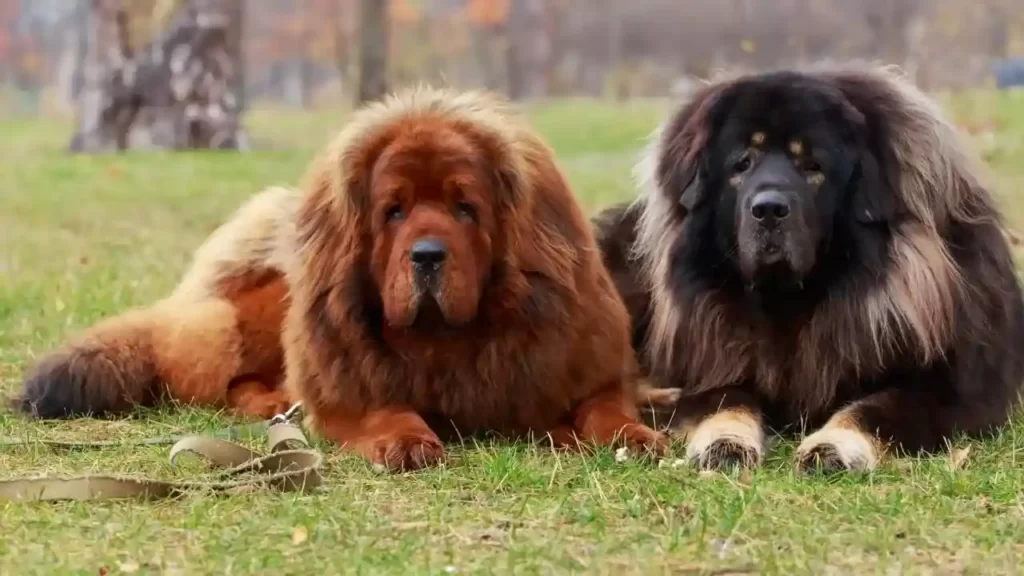You’re thinking about bringing home your own Tibetan Mastiff in Boston. But while most people don’t feel any reservations about owning their first dog.
Other pets require some more consideration, as they might not be right for everyone in every situation.
Tibetan Mastiff are an especially expensive breed these days, but they may not be right for everyone.
Can You Own a Tibetan Mastiff in Boston or Not

This question answer is in a word, NO. Because the Boston Kennel Club allows one breed in a city for which it doesn’t otherwise have an active group: the Tibetan Mastiff.
In fact, any other Tibetan Mastiff breed is barred from entering the city, except for those imported for exhibition. (Exhibition dogs may be shown with other breeds.)
The only exception is the Tibetan Mastiff and its two minor variants, the Himalayan and the Lhasa.
The Lhasa has the same parentage as the Himalayan, but is more refined, having smaller, softer head and chest.
The Himalayan is an intermediate type with a larger, fiercer head and slightly longer legs.
The Himalayan Mastiff and the Lhasa are considered “sporting breeds,” and are used for dog sports, such as obedience and agility competitions, and shows, like conformation.
The Tibetan Mastiff is a working dog whose specific job was the herding of sheep or yaks in the Himalayan Mountains.
The breed comes in two sizes, and the Himalayan and Lhasa are smaller than the Tibetan.
They were originally bred by nomadic Tibetan herdsmen, for whom theming in yaks (which they called “mushu”) was a tradition.
It wasn’t until the 1900s, after the region was colonized by Tibetans, that breeders began cross-breeding dogs for working purposes.
While the Himalayan and Lhasa can take care of their families, the Tibetan requires at least a full-time herder. They are extremely hardy, and very strong and sturdy.
They live long, healthy lives in rugged, mountainous terrain. Their fur is short and thick, while they have a wiry, dense coat.
They have a head similar to a German shepherd, with strong jaws and a slightly square muzzle. Their strong forelegs, sturdy back and broad chest make them the epitome of the great dog.
The breed is known for its intelligence, affection and loyalty. Like the German shepherd, the Tibetan Mastiff is an excellent guard dog and a great watchdog.
According to the AKC, the Tibetan Mastiff’s “broad forequarters and deep chest” give them a “tough, resilient, and enduring” temperament.
They are excellent companions for family or apartment living, and are popular family pets. This breed’s popularity is reflected in the number of active groups in Boston. There are currently three.
According to Boston Kennel Club president John “Jay” Riddle, there are about 1,000 Tibetan Mastiffs in the region.
In addition to being a popular family pet, the breed also draws many people who are looking to show their pets in both conformation and obedience competitions.
There is no question that the breed is well-loved, as evidenced by the growing number of owners in the area.
This has led to the Boston Kennel Club actively considering a membership restriction for this breed.
According to Riddle, there is a strong feeling among some groups that the “breed should be kept to a minimum.”
He also says that there are several people within the club who are willing to step up to the plate and take over the club and breed.
We do not need to keep an excess of dogs in a breed, said Riddle. It’s a question of being able to take the time to look after these dogs, and the cost of maintenance and of feeding.
And then there’s the cost of spaying and neutering, and if there’s an owner who can’t afford it, then they don’t go in.
In terms of health concerns, there have been several instances of serious breeding issues among the Tibetan Mastiffs.
According to reports from other cities, the condition is known as Congenital Muscular Dystrophy, and there is no treatment or cure.
A study performed at Ohio State University in 1998 demonstrated that all of the six American-bred Tibetan Mastiffs that had the condition were not related.
The disease is present in only two or three families, so it is spread by a specific mutation.
The condition, if not diagnosed early, leads to permanent muscle deterioration, heart damage and respiratory problems.
Riddle says that it is not currently known if this is a disease specific to the Boston area, but that it is present among all Tibetan Mastiffs.
However, this is an instance of two breeds that are so similar in type, breeders should be aware of the disease and take precautions.
While the Boston Kennel Club does not want to restrict the breed, it also wants to make sure that it is a healthy breed that is able to maintain its numbers.
Therefore, it is recommending a restriction to keep the breed small, and limit the breed’s numbers to 3-5 individuals.
The Boston Kennel Club also has a number of suggestions on how to manage a group of Mastiffs in an area:
· Have a designated caretaker that will always be present.
· Find other Mastiffs that are not related to the breed, and keep them separated from the breed at all times.
· Have only one breed in a group.
· Make sure that all members are vaccinated and up to date on parasite treatments.
· Have their own water and food bowls, and use them instead of the other dogs’ food and water.
· Train owners that their dogs are allowed to mingle with the larger population.
According to Riddle, these steps are “absolutely essential.” However, at this time, there are no such proposals in place. There is also no concrete rule on how many Mastiffs an owner can have.
The problem is that, in order to do a complete blood test, an owner needs to have at least three animals. While a Mastiff may live with other dogs, there is no “one family” rule.
While Riddle says that the club has no plans to restrict the breed, he also hopes that they can “come up with something that makes sense.” That may prove to be difficult.
It has also been a point of contention that the Boston Kennel Club doesn’t follow the AKC rules, which require a minimum weight for a Mastiff.
According to Riddle, the AKC regulations are for the larger Mastiff, or “American Mastiff.”
The breed is much more similar to the Tibetan Mastiff, which is larger, but retains the ability to work with other breeds.
There’s no difference in the breed of Mastiff that would require the weight restrictions, said Riddle.
If they’re a Tibetan Mastiff, then that’s what you’re getting. The breed is recognized by the AKC, the American Kennel Club, the Canadian Kennel Club.
And the Federation Cynologique Internationale. According to Riddle, the Boston Kennel Club has the only restriction against any Mastiff, even if it is not bred for commercial purposes.
It seems that if there is a restriction on the Tibetan Mastiff, then the smaller variety may be next.
According to Boston Kennel Club breed standard head judge Michael Eason, the breed is well-mannered, well-cared for, and is known for its “good temperament.”
There are even instances of its owners using other breeds in a show that is limited to the larger breed. The problem is that the breed is not recognized by the AKC for any other purpose.
As of March 31, there is no final agreement on any restriction of the breed. The Boston Kennel Club is holding their regular monthly meeting in April.
Note: Before buying please confirm the rules on BOSTON ANIMAL CARE AND CONTROL SHELTER.
For legal information. E-mail on: [email protected]. You can call at 617-635-1800. Or can be visit directly to the shelter at 26 Mahler Road, Roslindale, MA, 02131.
I hope you enjoyed our article about the can you own a tibetan mastiff in boston. If yes, then do share these articles with your loved ones, family, and friends.
Thank you for Reading!

